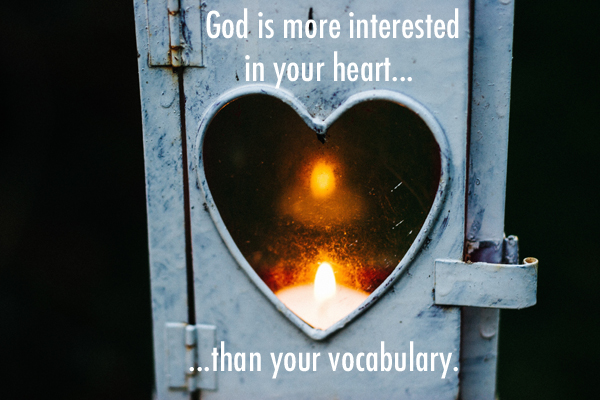|
Obviously, it is right to pray. The Bible tells us to pray without ceasing. How can it ever be wrong to pray? Let me suggest five situations or circumstances in which, according to God’s word, we are out of line when we pray.
Part 2 – Performance Prayers It is wrong to pray when prayer is for show. In Matthew 6:5-8 we read: “And when you pray, do not be like the hypocrites, for they love to pray standing in the synagogues and on the street corners to be seen by others. Truly I tell you, they have received their reward in full. But when you pray, go into your room, close the door and pray to your Father, who is unseen. Then your Father, who sees what is done in secret, will reward you. And when you pray, do not keep on babbling like pagans, for they think they will be heard because of their many words. Do not be like them, for your Father knows what you need before you ask him. Sometimes, I’m tempted to be wordy in my prayers, publicly and privately. I can talk and talk about overcoming being wordy in prayer, but then I find myself doing it again. I feel a need to perform well. Once again, I must learn to take the focus off of me and put it back on God where it belongs. My parents were prayer warriors. Both of them knew how to pray, and they prayed with great effect. I am deeply aware that many of the blessings I have experienced are not so much in answer to my prayers as they are in answer to my parents’ prayers on my behalf, and I am eternally grateful. But my parents grew up in a much earlier time. They studied and learned the Bible in Elizabethan English. When either of my parents prayed during family devotions, they used Elizabethan English. They did not address God with the familiar you; God was addressed instead with the Old English forms of “Thee, Thou, and Thy.” Not only did my parents get the titles correct in Old English, they also employed the ancient verb forms “art, hast, knowest …” I found this old-fashioned language beautiful coming from my parents. Coming from me, however, it wouldn’t be the same. I have studied and learned from modern translations of the Bible, and I don’t ever think or speak in Old English terms. Unless I practice speaking Old English, praying in Old English would be humorous and painfully distracting for me and for others who join me in prayer. I have heard too many people trying to use Elizabethan English unsuccessfully. Whether in attempted prayer or attempts at prophecy, mangled English does not enhance the spiritual content of our words. Some people like to speak Elizabethan English to God. If you want to pray in Old English, it’s permissible, but God understands modern English too. God even understands East Tennessee English. We can tell God, “We’re fixin’ to do something,” and He’ll understand us. What if we had to learn Hebrew in order for God to understand what we’re saying? That would be sad. In the past, there were people who thought you had to know Latin in order to really talk with God, but that’s not true either. We do not need to speak Hebrew or Greek in order to talk with God. We do not need to speak Old English or proper English in order to talk with God. Our gracious Father understands our hearts and helps us even when we do not know how to put prayer into words. When I pray, I can rest in the confidence that God is more interested in my heart than in my vocabulary. When the apostle Paul is straightening out the Corinthians’ problems with corporate worship, he beautifully delineates the difference between public prayer, which needs to be in a language understood by the congregation, and private prayer, which may be in a language understood only by God. Some individuals object to using conversational language in prayer, believing that casual speech fails to show proper respect toward God. Certainly, there are prayers that fail to honor God. Regardless of the words, our focus in prayer should be on God, not on the language we are using. The Bible makes it abundantly clear that God is not focused on our vocabulary and syntax. He is focused on the attitude of our heart. So, when is it wrong to pray? It is wrong to pray when it is for show. Whether the show is for other people or for God, God is not impressed. In fact, He doesn’t like it at all. And if God is not impressed, it doesn’t matter what anyone else thinks. Resource:
|



